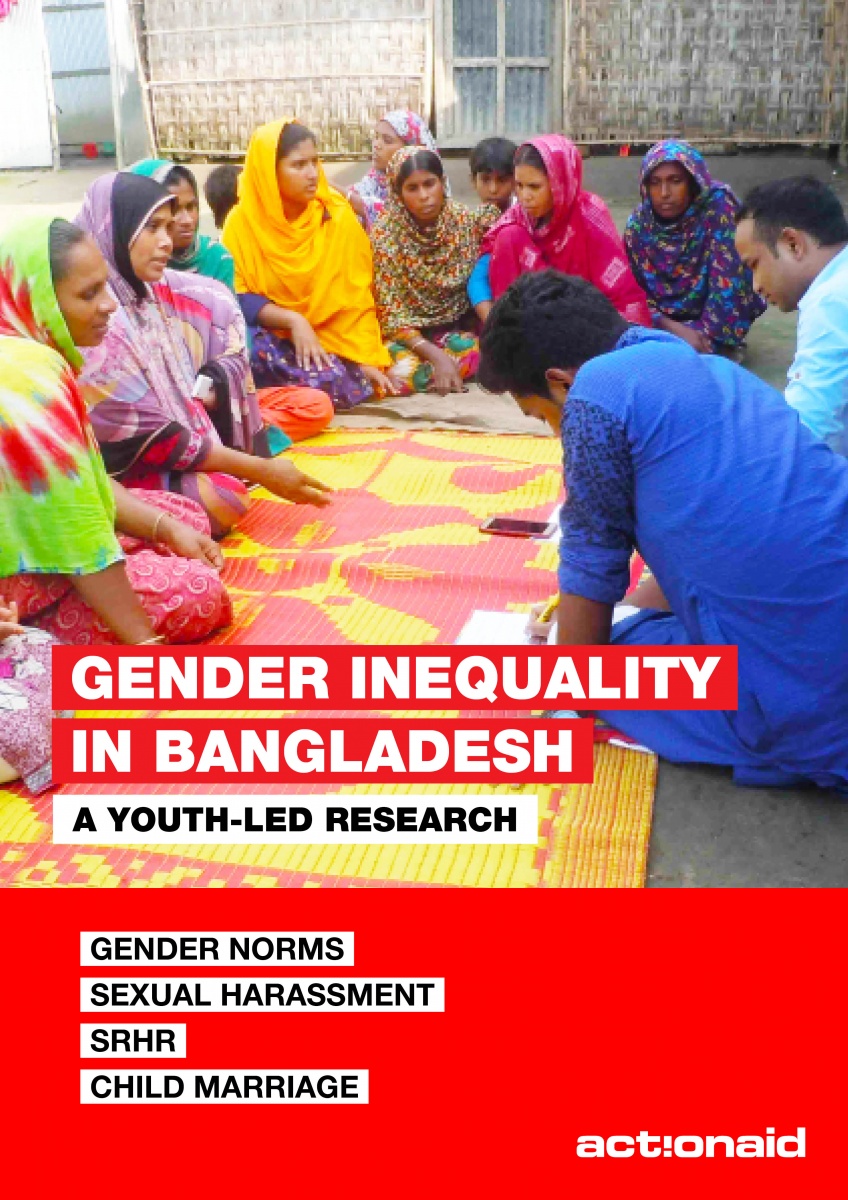Gender Inequality in Bangladesh – a Youth-Led Research ( Gender Norms, Sexual Harassment, SRHR, Child Marriage)
11 young people from the Young Feminist Futures network (YFF) supported by ActionAid Bangladesh Global Platform planned and developed a research investigating the causes, effects, and possible solutions to gender inequality. The report includes four cases, data from thirteen cities/communities and interviews and focus groups with a total of 178 people (64% females, 35% males). The research findings were used for evidence-based advocacy campaigns in 10 cities that engaged 152 volunteers.
Gender inequality is a major issue in Bangladesh that affects different aspects of women and girl’s social, personal, professional, and political lives. Although the constitution of Bangladesh has guaranteed equal rights to all citizens irrespective of sex, religion and caste; women and girls experience significant levels of harassment, violence, discrimination and harmful practices like child marriage. Indeed, the country ranked 135th in the Gender inequality index (UNDP, 2018), women’s representation in the workforce is only 10.7% ranking 135th in the Economic Participation and Opportunity index (WEF, 2017; 2018), 54.2% women experience physical and/or Sexual violence from their intimate partner, 58.6% of girls face child marriage (Gender Statistics of Bangladesh 2018, 2019). This data shows that the gender gap is significantly wide as a reflection of inequal power relations, systems, and gender norms in society.
This youth-led research on gender inequality was carried out as part of GPB support to the members of the Young Feminist Futures (YFF) network, a youth network aiming to challenge the patriarchal system and gender discrimination and at promoting gender equality and a feminist agenda in Bangladesh. This report includes four research case studies conducted by young people from the network on different aspects of gender inequality including gender norms, sexual harassment, child marriage, sexual and reproductive health and rights. The findings were used by the YFF network members to plan and to carry out advocacy campaigns for gender equality in their communities. The report shows the potential of the youth-led research in engaging young people to analyze social issues and to hold duty bearers accountable at the local level on SDGs Goal 5 to achieve gender equality and empower all women and girls.
Full Report Link: https://www.globalplatforms.org/documents
If you have questions about the research, contact Ariful Hoq Shanil: Ariful.Shanil@actionaid.org

